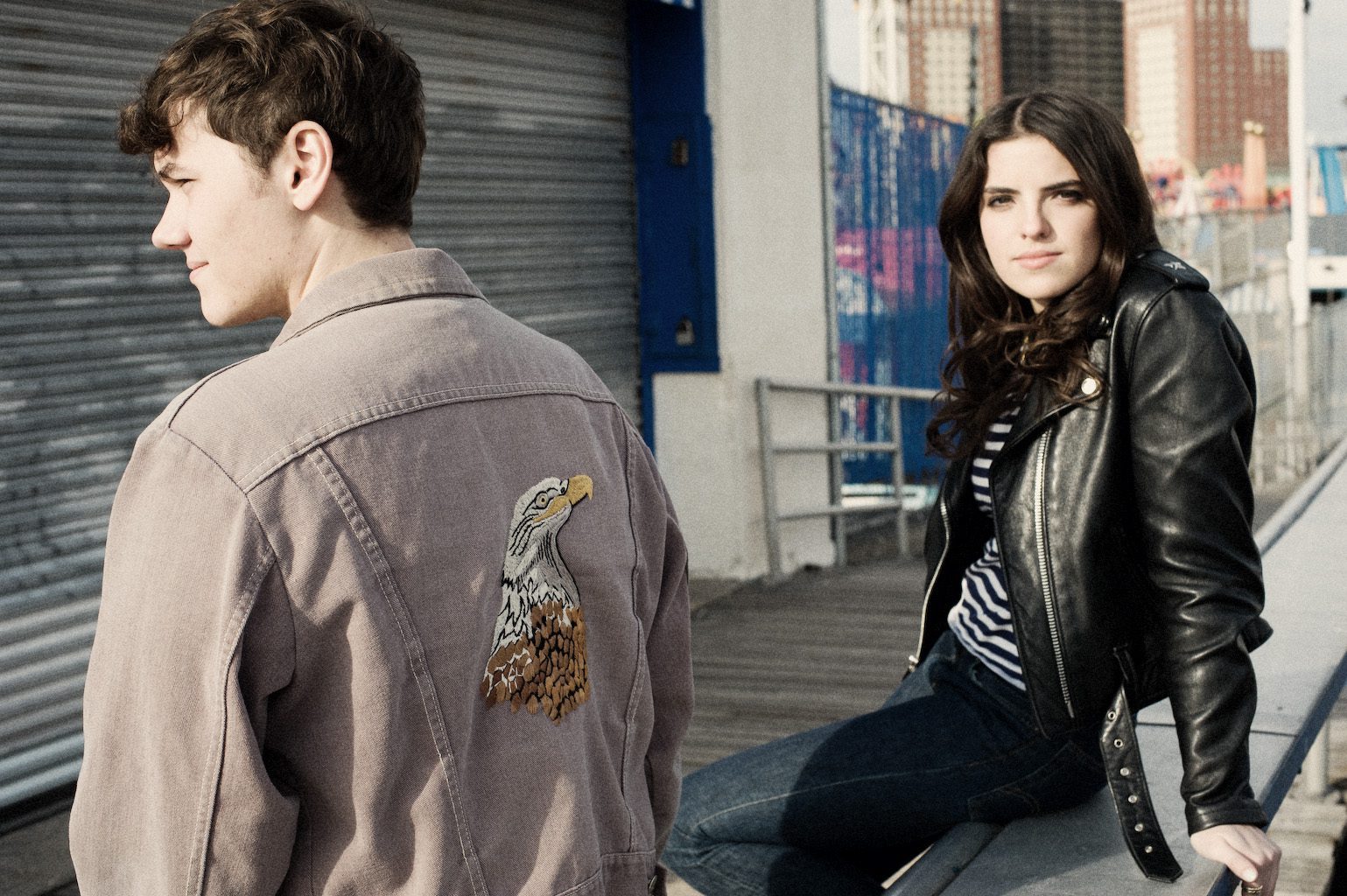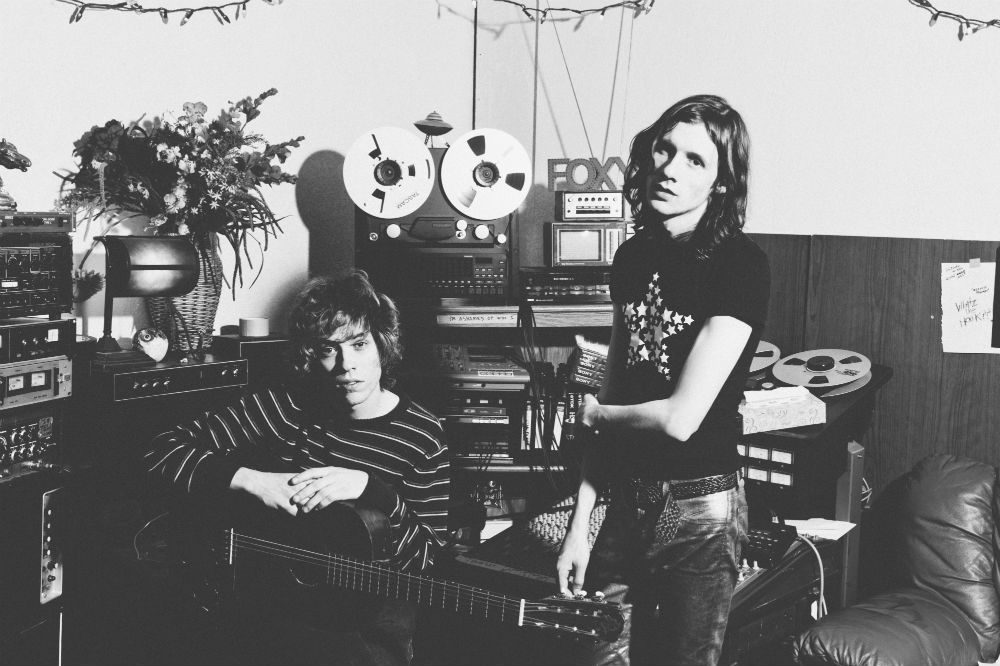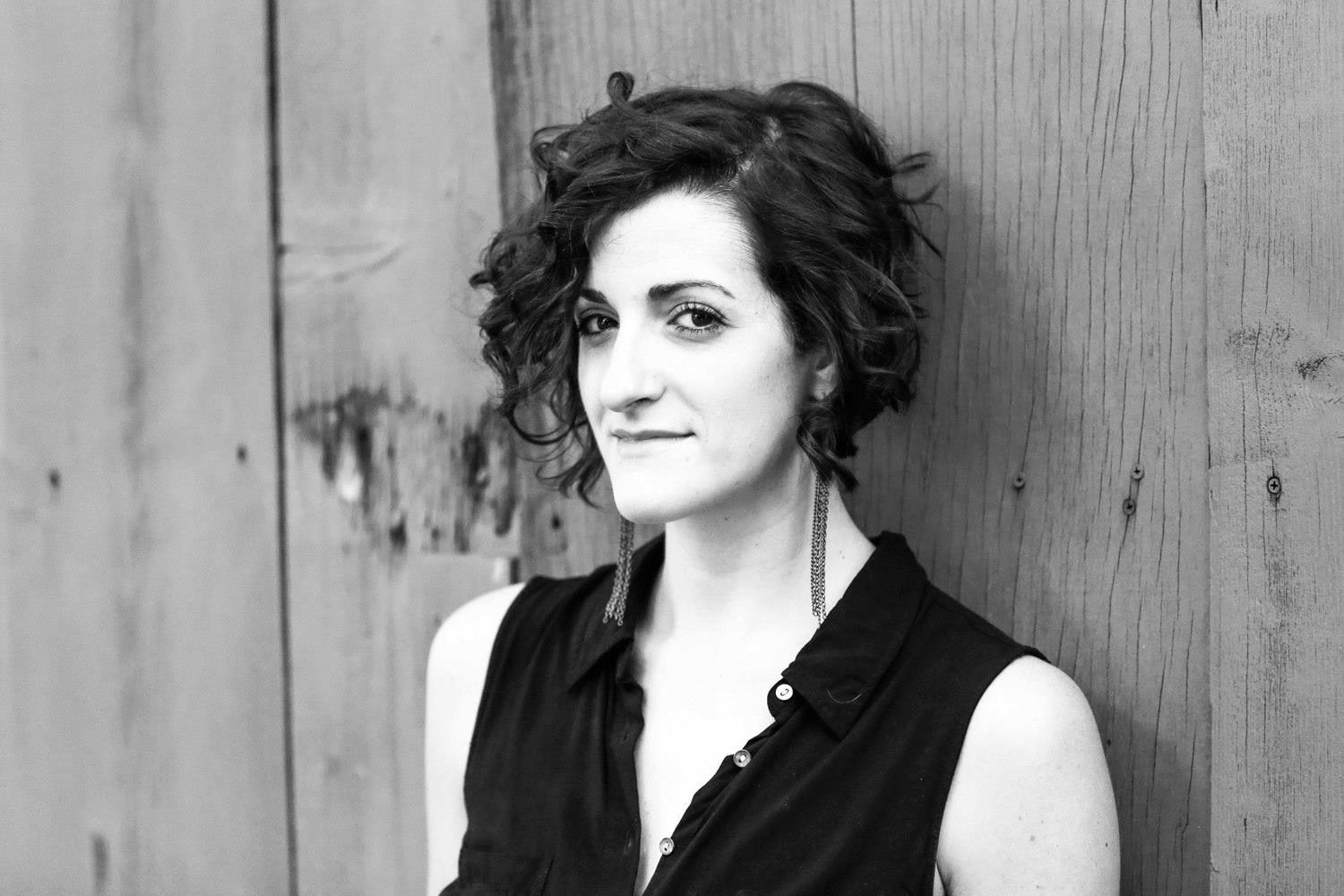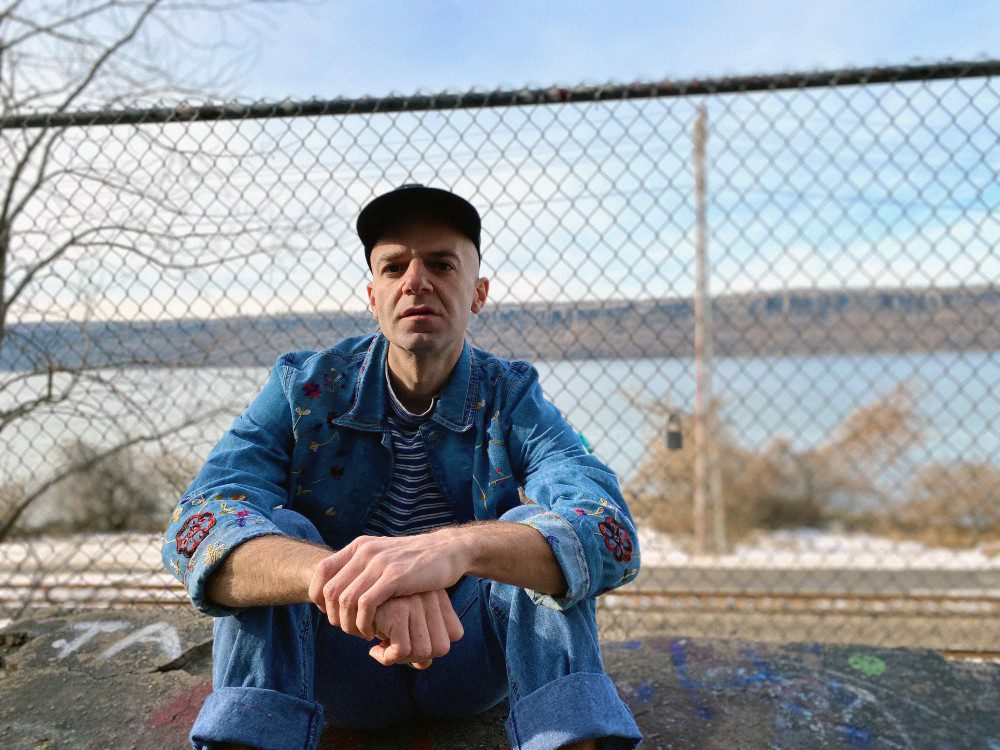
Eliza Callahan and Jack Staffen grew up at the same time–and in the same zip code!–but as the harmony-happy folk pop outfit Jack + Eliza, the pair spans decades. “Hold The Line,” the first single off their forthcoming EP No Wonders (via Yebo Music), takes the seventies-era classic rock that Eliza was raised on and braids it with Jack’s boy-band background. Mellow and sunny, the EP touches on a wide range of influences as it ambles comfortably through its five tracks, underscoring the pair’s intricate vocal harmony with a gentle guitar line. No Wonders presents Jack + Eliza’s music in its simplest form. As you’re listening to the EP, you can practically close your eyes and pretend they’re in your living room–so intimate it feels like a personal introduction.
No Wonders will be out at the end of this summer, but you don’t have to wait until then to get to know them. I sat down for a chat with the duo, to discuss their backgrounds, their creative influences and how the NYC music scene is like no other. Here’s what went down.
AudioFemme: So both of you grew up in New York. How did you meet?
Eliza Callahan: Yes, we both grew up in downtown Manhattan. We actually have known each other since we were about ten or eleven. We weren’t really friends, until I had a friend who played guitar in the band Jack was singing in, and their drummer quit, so they asked me to play drums. I’m really not a drummer. I do not know how to play drums. But that’s how we met. We went to rival high schools in Brooklyn, and everyone kept saying that we should write music together. We were both too shy to approach the topic, but finally we wrote a song one day and we liked it, so we kept going.
AF: When did you write that song?
Jack Staffen: I guess it’s been two years now. We wrote that song the year before last, in August.
AF: How do you guys relate to the New York music scene?
EC: We’ve been writing a lot, and now one of our goals is to find a niche and a group of people we enjoy playing with. There’s just so much out there that there’s no one community that you can gravitate towards. There are definitely bands who we’ve played more than one show with, who we really like, and at our schools there are scenes, but we’re also looking to be part of a bigger scene. Hopefully that happens naturally.
AF: Have you ever wanted to live New York and live somewhere else?
JC: (laughs) No.
AF: Is that because of the musical opportunities here, or do you just love it?
JC: Both. The music scene here is like nowhere else, but I also just love New York City.
EC: I could definitely see living in other cities in the future. I love to surf, and I love the beach, but I’m really not goo with non-urban environments. I don’t like silence. I can’t sleep if there isn’t noise outside.
AF: Tell us about your musical backgrounds.
JS: I started playing guitar when I was five, and I hated it. Then I picked up the piano and I loved it. When I was about nine, I was still really into the piano, but I picked up the guitar again and just fell in love. Pretty much from then on I’ve been playing music, and I started writing music when I was eleven. I’ve never gone in for formal training, we just had a piano and I picked it up from there.
EC: I started on classical guitar–the Suzuki Method–when I was three years old. It was funny because my parents didn’t want me to start that young, but I had a friend whose mom really wanted her to play classical guitar. She ended up quitting, but I fell in love with the Suzuki Method. When I was six or seven, I started playing jazz, and then I decided to play rock and roll because like every child–and every human, I guess–I loved The Beatles. So then I started writing music. I had a little recording device and I would record these stream-of-consciousness, epic songs that went on for eleven or twelve minutes. I went to a school where we wrote a lot of poetry, so I would take the words that I had written and kind of yell them, or sing them, over these weird chords I was playing. As I got older I developed more of a formal approach.
JS: My first song was like…a Backstreet Boys song. Yours was totally different.
AF: Why did you decide to just go by Jack and Eliza instead of picking out a name for your band?
EC: We didn’t start with the intention of being a band. It was just a project we were working on, and our friends would say, you know, this is a song Jack and Eliza wrote together. We just kept on writing music, and we started playing shows, and it became really hard to find a name we could identify with after we had been playing together for so long. And also, we really did want a name. We did not intend to end up being Jack and Eliza, and I hope people can look beyond the boy-girl name thing. I think that has various connotations, and I don’t want that to affect our music, or people’s views of it. But we were also very happy with the ring. We like the ring. I have a whole list of band names that I’ve been making throughout my life, and we just did not feel that any of them fit.
AF: Growing up in the same circle of friends, does that mean that your musical tastes are similar? Do you have similar influences?
EC: No, I think our influences are actually pretty different, although our tastes are getting more similar. I was raised on a lot of old rock and roll. My dad listened to old rock and roll, so I listened to The Kinks, The Beach Boys, that type of thing.
JS: I listened more to what was coming out when I was younger. Radiohead, Fountains of Wayne, Rufus Wainright, that was the stuff I listened to. As I got older I started getting into what Eliza was listening to.
EC: It’s interesting, because Jack comes from a more poppy background, whereas I come from a more rock and roll or folky background, and I think we taught each other the positive things about both of genres.
AF: Tell us about your new EP, “No Wonders”. When is it coming out? How did you start recording it?
EC: It’ll be out at the end of summer or early in the fall. We recorded it here in New York City, with Chris Zane, at Gigantic Studios. We recorded it from December to February. We had completely written the EP before we went into the studio.It’s pretty stripped down. We wanted to keep it simple and have people listen to us first as us in our most “bare” form, and then build from there. We definitely want to add more sonic texture in the future, but to start out, we wanted to keep it very straightforward.
AF: You’ve been playing a lot of shows around the city lately. How has that been?
EC: It’s been a lot of fun. It’s weird, though: we’ve both been performing since we were really young, but I get more and more nervous every time I perform. I don’t know why. When I was younger I could care less.
JS: And I really love performing.
AF: It seems like you guys are kind of opposites, and you balance each other out.
EC: That definitely is true. Jack has a very clean, lovely voice and can sing way higher than I can. Jack takes the high harmony a lot of the time. So Jack will start doing these vocal runs, and then to counter his Backstreet Boy vocal runs, I’ll attempt to sound like Lou Reed. Well, that’s an extreme. But in rehearsal, that is our battle.
AF: Do you write songs totally collaboratively?
JS: It’s pretty much all collaborative. Occasionally one of us will bring a chord progression, maybe with the melody, maybe not, and we’ll work from there.
EC: I don’t know how we’re able to collaborate–I don’t want to say so well, but I don’t know how I would write a song with anyone else. It’s not something that I foresee being possible with anyone else. If anything, the chord progressions are usually collaborative. Jack usually writes most of the harmony, because his voice is better. I write a few more of the lyrics. But it’s pretty much collaborative.
AF: As a writer, I’m totally mystified by that. It seems horrifying sharing control over a project. Is working together sometimes difficult? Do you have any advice for people who want to learn how to collaborate?
EC: Well, I feel that way too, because I write a lot. I think about collaborating on my poetry, or my creative writing pieces, and that’s terrifying, but for some reason, with songwriting, I’m a lot more willing to let go and let something happen that I might not allow when I’m obsessing. I think it’s that I don’t obsess over songwriting the way I do with my other writing. I don’t know why that is, but I think that’s what allows for a hopefully successful collaboration.





